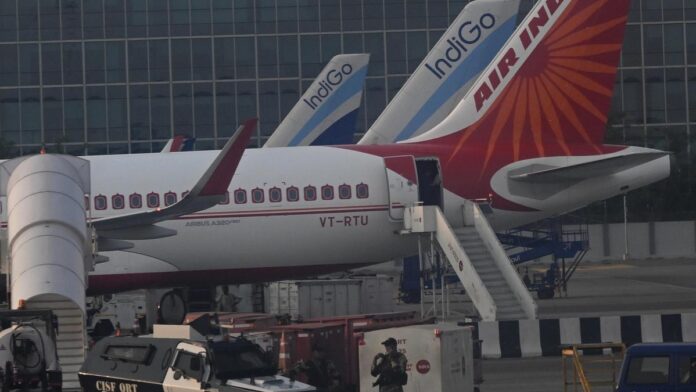
Airlines have also stalled another key suggestion of raising weekly rest for pilots from 36 hours to 48 hours. File (representational image)
| Photo Credit: B. Jothi Ramalingam
In a letter to the DGCA, IndiGo and Air India Group have opposed the regulator’s proposal to reduce night flying for pilots known to contribute to fatigue. While IndiGo has rejected the suggestion altogether as it will have a “severe operational impact”, Air India said that it could be implemented only after the regulator introduces an advanced data-based fatigue management system.
Airlines have also stalled another key suggestion of raising weekly rest for pilots from 36 hours to 48 hours. While IndiGo has said it could implement this in a staggered manner between June 2025 and after July 2026, Air India Group has said it could implement this from June 2025. These recommendations were part of the DGCA’s revised norms governing rest and duty hours for pilots notified by the regulator in January 2024 which were to be implemented from June 1. But these were put on hold on March 26 following stiff opposition from airlines. Subsequently, in April, the regulator asked airlines to inform the timeline for implementation they were comfortable with. The airlines have submitted their replies nine months later.
IndiGo has shunned the DGCA’s suggestion to raise the definition of night flying from all flying between midnight to 5am by an hour to include flying till 6am in a letter from IndiGo Chief Operating Officer, Isidro Porequras, to the DGCA on December 4. The Hindu has reviewed a copy of this letter.
“We propose retaining the current definition of night flying,” the official has written.
Expanding the definition of night flying would essentially bring down night flying for pilots as airlines are not permitted to assign more than two consecutive nights of night duties in a week.
Both Air India and Air India Express have informed that they can implement the new definition of night flying only after the DGCA implements Fatigue Risk Management System. The responses by both these airlines were also submitted on December 4 and have been reviewed by The Hindu.
The UN’s aviation watchdog International Civil Aviation Organisation defines an FRMS as “a data-driven means of continuously monitoring and managing fatigue-related safety risks, based on scientific principles and knowledge as well as operational experience that aims to ensure relevant personnel are performing at adequate levels of alertness.”
Digging its heels in on the issue of night flying, IndiGo has further said that the proposal to restrict the number of landings to only two during night flying could be implemented only after October 2026, and only if the flying hours fully encompassed the midnight to 5am period. This implies that if flying started or ended any time in between, say at 2am or 3am, IndiGo would assign more landings. Pilots explain that it is during take-offs and landings that most accidents happen and these are the most stressful phases of a flight because an aircraft’s proximity to land require quick decision making and there is higher workload because of changes in aircraft configuration, which is worsened by conditions like air traffic and inclement weather.
Further, IndiGo too has said that all its proposals are based on the premise that the DGCA will implement FRMS.
SpiceJet said it wanted the new rules to be implemented only by March 2026, as it would be required to hire 25% more pilots. It also requested the regulator to waive the proposals during monsoon and fog.
“We must remember that UN aviation watchdog International Civil Aviation Organisation’s Annexe 6 recommends FRMS only for markets with mature aviation safety system. Otherwise, countries have to implement prescriptive norms. In its last audit of aviation safety standards of DGCA, the ICAO in its ratings said that India didn’t achieve its State Safety Programme (SSP) Foundation,” explained aviation safety expert Captain Amit Singh who is also a pilot for a foreign carrier and runs an NGO called Safety Matters Foundation. SSP Foundation refers to a set of activities that help countries build a solid safety oversight foundation.
He also explains what makes night flying strenuous for crew.
“The body repairs itself during a period of 2 a.m. to 5 a.m. when a person is sleeping. But if the person is awake that repair is not happening, since it disturbs the circadian rhythm. This results in fatigue which builds up over a period of 3 to 4 days leading to accumulated fatigue along with impaired cognitive function. To overcome this, the European aviation regulator recommends two days and two nights of rest twice a month whereas Indian regulations only provide for 36 hours of rest per week,” Captain Singh explains.
Published – December 18, 2024 06:01 pm IST
